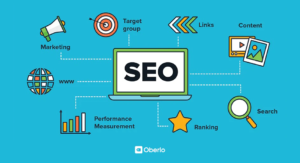Commercial Electrical Service
Commercial Electrical Service covers planning, installing, maintaining, and repairing power systems that run devices and lighting in businesses. It also ensures safety and energy efficiency.
Commercial buildings require more electricity than residential ones and require specific wiring types, such as conduits, to handle the load. Additionally, electrical load calculations must be precise to avoid overloading.

While some people think that commercial and industrial electrical work is the same, they are two distinct fields with unique requirements and challenges. While both sectors prioritize safety, the nature of their work differs significantly. Commercial and industrial electricians deal with larger-scale projects that involve heavy equipment and complex control systems.
Consequently, their electrical systems are more complex and require more maintenance to ensure proper functioning. This includes more frequent testing and inspections to spot any signs of wear and tear. It also entails installing smart technology and energy management systems to optimize energy usage and reduce costs. It is also important for these experts to stay up-to-date on emerging industry trends and technological advancements.
Some common projects that these professionals handle include planning and installing wiring for new constructions. They are often required to read blueprints and building codes to ensure that their installations are in compliance with applicable regulations. In addition, they might install security systems and lighting fixtures. They might also assist with the installation of HVAC systems or other advanced equipment specific to the needs of a particular business.
In the event of a power outage, commercial electrical services can help with emergency repairs. These specialists will be able to evaluate the situation and determine the most appropriate course of action. They can then restore the power and make any necessary repairs to prevent further damage or loss of data.
In addition, commercial electricians can inspect and test the electrical service to a property. This includes the conductors, materials, and equipment that transfer power to a building’s wiring system. They should also be able to identify whether the service is overhead or underground. If it’s overhead, they should also be able to check that there is a clear path to ground. This will usually be visible at the meter or meter enclosure and should lead to a driven ground rod. They should also test that the service is bonded and grounded, as well as that it meets the minimum clearance requirements of local codes. If it doesn’t, they should be able to recommend an upgrade.
Maintenance
Electrical systems are integral to the everyday operation of a commercial space. They provide essential functions such as lighting, heating, cooling, and security while minimizing downtime and safety hazards. These systems are so essential that businesses tend to take them for granted, but without routine maintenance, they can quickly become problematic.
Electrical maintenance services offer a wide range of solutions to keep commercial spaces operating at full capacity. These services may include:
Routine Inspections: Commercial electrical services can perform comprehensive inspections to detect potential issues before they escalate. These services can include checking for signs of wear and tear, overheating, corrosion, or damage to equipment and wiring. If issues are detected, they can be addressed immediately before they grow into major repairs and downtime for the business.
Repairing Outlets and Switches: Faulty outlets and switches are a common issue with commercial electrical systems. These can lead to loss of productivity and pose safety hazards for employees. Commercial electricians can perform emergency repair services to resolve these issues as soon as possible.
Upgrading Electrical Panels: Electrical panels are the command centers of a commercial electrical system, and they can be upgraded to handle increased power demands and prevent overloads. Electrical service upgrades can also improve the aesthetics and efficiency of a space.
Lighting Solutions: Commercial lighting is more than just functional, and it can be used to enhance the aesthetics and appeal of a space while improving employee morale. Professional commercial electricians can create custom lighting solutions to suit the unique needs of a business.
Generator and Back-Up Power System Maintenance: In areas prone to power outages, backup power systems can be critical for ensuring that business operations continue without interruption. Regular maintenance of these systems ensures that they are ready to go when needed.
Regardless of the size or type of a commercial property, it is imperative that it have reliable electrical systems. If the system fails, businesses can lose money through lost production, damages to inventory, and safety hazards. By working with a commercial electrical service, businesses can avoid costly maintenance and repair issues in the future.
Troubleshooting
Commercial electrical systems are broader and more complex than residential ones, requiring greater capacity to support machinery and other electrical needs. That means that any issue that arises within a commercial space must be handled by a skilled technician to minimize damage and ensure safety. That’s why commercial electricians offer troubleshooting services to help identify issues quickly and accurately. This helps to expedite the repair process, ensuring that business operations don’t suffer prolonged disruptions and costly downtime.
Commercial electricians can also assist with the design of power backup systems. These can include generators and uninterruptible power supplies, which are vital for keeping equipment running even during a power outage. This service reduces the risk of costly financial losses caused by data loss and operational hiccups, allowing businesses to maintain productivity even in the face of adverse electrical conditions.
It’s important to know the warning signs of an electrical problem in a commercial building, including flickering lights or frequent breaker trips. These problems can be indicative of a larger, more serious electrical issue that requires professional attention.
An experienced commercial electrician can assess the condition of your wiring to make sure it’s safe and up to code. This includes checking for bare or exposed copper wires, loose connections, and other factors that can increase the risk of fires in your building.
During routine maintenance visits, a licensed electrician can identify any potential problems with your electrical system and address them before they become bigger issues that threaten your business’s safety and efficiency. Common electrical repairs include panel upgrades, wiring repairs, lighting system fixes, and outlet or switch repairs.
Often, commercial properties have extensive wiring that can be difficult to inspect. This can lead to a number of issues, such as overcrowded wiring that causes them to rub against each other and create friction. This can cause the protective coating on the wiring to wear down, exposing the copper underneath and increasing the risk of fires. Commercial electricians can reorganize and redo the wiring to reduce this problem. They can also test your circuits and outlets to make sure they’re up to speed, so you don’t experience an outage or a fire.
Repairs
When electrical problems occur in a commercial setting, they can disrupt business operations and pose safety risks. Commercial electricians are trained to quickly identify and repair these issues to prevent costly downtime and ensure the safety of people and equipment.
Electrical repair work includes services such as replacing outlets or switches that have worn out, fixing wiring that has become faulty, and updating older systems to comply with current electrical codes. These professionals are also often called to provide maintenance work that reduces the risk of fires and equipment failures.
For example, a company that leases an office space may hire a commercial electrician to install new wiring for data and communications needs. A commercial electrician can also upgrade outdated lighting to energy-efficient LED lights. This can improve productivity and help the environment.
Another common service is installing surge protectors. These devices divert excess electricity away from sensitive electronics and appliances during power surges. They can protect expensive equipment from damage and save companies money.
In addition, commercial electricians can repair or replace circuit breakers and fuse boxes that are overheating or not functioning properly. They can also install or replace light fixtures, ceiling fans, and more.
Whether you’re an owner of a large commercial building or a small office, a reliable and professional commercial electrical team is essential. Their expertise and experience in providing a wide range of services can make your property more attractive, efficient, and safe.
As the world becomes more technologically advanced, commercial electrical services are becoming increasingly important for businesses of all sizes. They can offer many benefits, including improved productivity and a safer working environment. To find out more about the range of services offered by a commercial electrician, contact an experienced local electrical contractor like System Solutions of Washington. They can answer any questions you may have and provide the necessary services for your property. When it comes to electrical services, you want to partner with a company that will offer exceptional customer service, integrity, and quality workmanship. They will also be knowledgeable about the latest trends in the industry.








